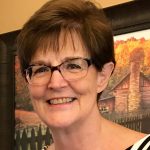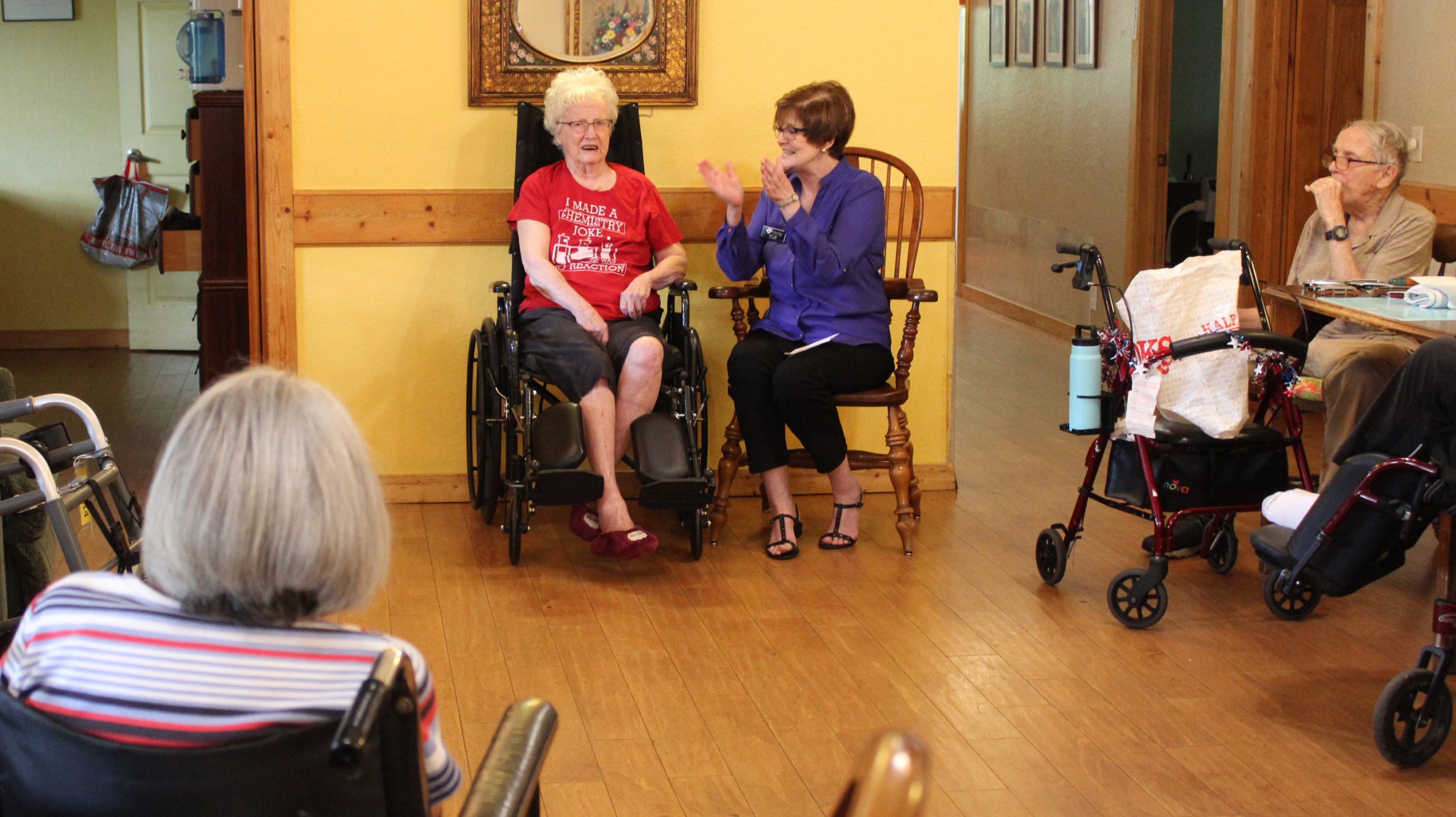I have been a singer and choir director my entire life and have witnessed the joy of music-making in a wide variety of ways from enabling adults to sing classical pieces that they thought were beyond their abilities, to teaching young children to sing simple refrains that helped them memorize and claim words of faith. I have also seen the joy on the faces of senior adults in care facilities light up as we have sung together songs from their youth and childhood. Now I am experiencing the miracle of music touching the mind and the soul of those who are locked in the isolating world of dementia.
Currently, I have a patient, “Ann,” who lives in a care home with a small number of other residents. I was aware that Ann had sung in church and community choirs all her life, so I sang with her on my first visit. Near the time I needed to take her into lunch she said “Ok, so let’s get out there.” Because she pointed to the front door, I assumed she meant leave the facility. After a couple of exchanges, I realized she meant that we had practiced enough and now it was time to go perform! I promised her we would sing for the other residents next week when I came back and she was satisfied but it was clear that she thought we had warmed up enough! I shared this conversation with the care home manager who helped me to understand just how miraculous this was. Ann had sung every song I sang with her and knew almost all of the lyrics. Nothing in Ann’s daily life had reflected this same kind of cognition. The manager asked if I would sing with all the residents the next time I came to visit Ann.
So each week for the past several months, I have sung with Ann and the other residents and miracles seem to happen each time I am there. I include special time with Ann before and after I sing with the group. In between songs, I have conversations with Ann and she frequently is better able to respond after she has sung a few songs.
The staff at the residence has been making sure that most of the residents are out in the main room when I arrive to sing.
Several sing or dance in their chairs or wave the colorful ribbon sticks I bring with me. We even have a wonderful harmonica player who owns harmonicas in every key and plays along with the songs we sing. There are a few residents who generally are not able to communicate who are also brought out for the singing. Each time I go, one of these people will suddenly start to sing along with us. This may last for only one song but it is thrilling to see the staff light up as a connection has been made, even if only briefly.
Imagine hearing “Glory, Glory Hallelujah” coming from someone who had been silent for the 30 minutes before we did “Battle Hymn.” Next we sang “Hava Nagila” and every word rang out clearly! Frequently the manager will take a video of the resident singing and then share it with his or her family. I can only imagine the joy the family experiences as they see and hear their loved one singing a familiar song.
I have always been grateful for the gifts of music-making but that gratitude has deepened since meeting Ann and all the residents in this care facility. Life is about connection; music is a golden cord between those whose minds are locked away and those who seek to be in relationship with them.
The following quote from a music therapy website sums up the joy and wonder I am experiencing:
“Music imprints itself in the brain deeper than any other human experience… Music brings back the feeling of life when nothing else can.”
Dr. Oliver Sacks

Beth Judd
Hospice Austin Volunteer





